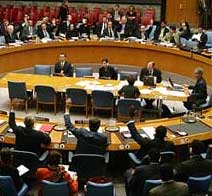By David Heller (Posted: February 13, 2009)
Canada, like many of its neighbors, is struggling to balance the competing needs of economic improvement and environmental protection during this global depression. Included in Canada’s 2009 federal budget, recently presented to Parliament, are suspicious provisions that encourage “regulatory efficiency” in infrastructure projects designed to jump start their lagging economy. Leaked documents suggest that this expediency might come at the cost of weakening the Canadian Environmental Assessment Act (CEAA), a price that many Canadian environmentalists are not willing to pay.
Under the current CEAA, federal departments, agencies, and crown corporations must conduct environmental impact assessments (EIA) for proposed projects where the federal government is the proponent, or where the project involves federal funding, permit, or license. These EIAs, though frequently ridiculed for causing delays in the construction process, are often the only means people have to participate in assessing government projects and intervening when such projects are perceived to have unwarranted environmental costs.
The budget that Canadian Prime Minister Stephen Harper introduced to Parliament on January 27th devoted more than $2 billion towards transforming the Canadian economy into a sustainable and environmentally friendly one, but also included provisions that might undermine this process by making certain projects exempt from EIA oversight.
Authors of the 2009 budget claim that full compliance with CEAA impedes Canada’s economic recovery. “Currently,” the budget states, “infrastructure approval processes are subject to duplication and inefficiencies in administration, leading to unnecessary project delays.”
In order to address this perceived flaw, the budget says that “…regulatory efficiencies will be pursued for projects subject to the Canadian Environmental Assessment Act.” [Emphasis added].
Leaked documents received by the left New Democrats Party indicate that this interest could manifest itself in several forms. The first possible route being examined is eliminating the need for EIAs on certain infrastructure projects costing less than $10 million. Another option is reducing oversight on bigger projects, which currently require separate EIA assessment at the provincial and federal levels.
In line with this first option, the Toronto Star reports that Federal Infrastructure Minister John Baird is targeting certain less costly and “environmentally friendly” projects for EIA exemption. As Baird says, “We’ve got a lot of rules in place to stop bad things from happening, but we don’t have anything to help good things happen, particularly for things like public transit and waste-water treatment that improves water quality.”
The other alternative being tinkered with by Conservatives is designed to combat the time cost associated with fulfilling the EIA mandate. Echoing the redundancy cited in Canada’s official budget proposal, Baird told several newspapers that, “There’s a real hodge-podge of environmental assessment requirements – of overlap and duplication. Many of them are just duplicating what’s done at the provincial level.”
There is legitimacy to these latter concerns given the depression and the immediate economic value that construction can bring. But the logic behind the first option, that certain projects (like water treatment plants or public transit infrastructure) ought to be exempt from an EIA because their purpose is to mitigate environmental harm, is terribly flawed.
Barring the invention of environmentally friendly bulldozers, shovels, and the like, a project’s finished product ought to not blind Canadians to the harm that the project’s construction might wreak on surrounding areas. For this reason, allprojects, regardless of their purpose and cost, must be subject to at least one EIA.
As alluded to earlier, the EIA also provides a valuable civic service to the Canadian people. Jamie Kneen of Mining Watch Canada, an environmental watchdog organization, highlighted the fact that the EIA can facilitate the exchange of information between people while allowing public concerns about certain government actions to be addressed.
“Whether it’s a small footbridge or a huge open-pit mine, if a project is badly designed or if it’s just a bad idea to begin with, the public needs a way to make sure it is fixed or stopped,” Kneen said.
Ongoing debates within governments are framed within the anachronistic concept that economic recovery must come at the expense of environmental harm. It is necessary to forego these false zero-sum boundaries, by tethering economic growth to spending that will have positive short- and long-term implications for the environment. Only EIA-approved investment that addresses climate change, taps into renewable sources of energy, and creates sustainable and healthy communities can effectively satisfy the two public goods of economic recovery and environmental protection.
Please continue checking back to see how the planet’s governments are responding to this universal challenge.




